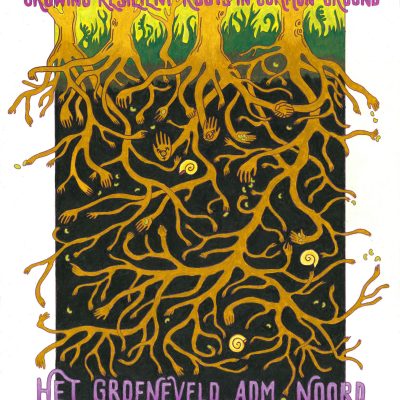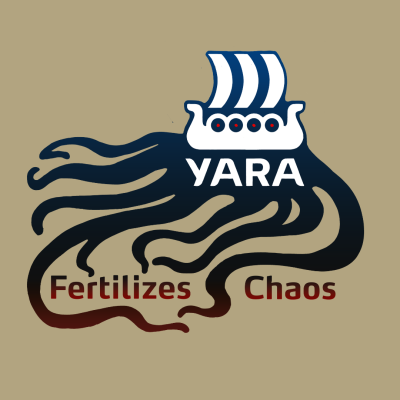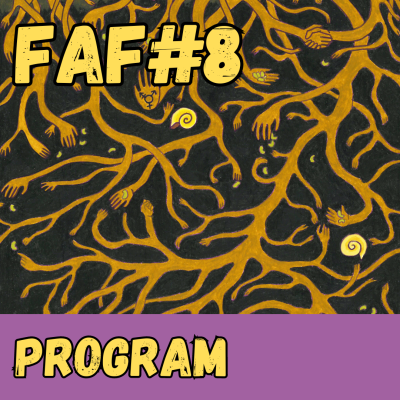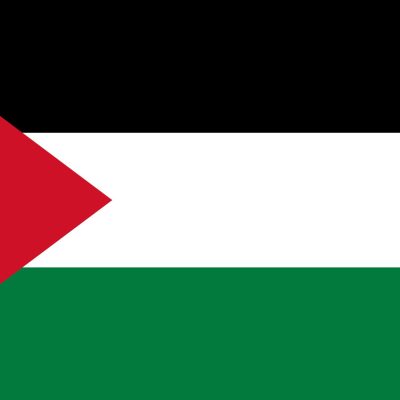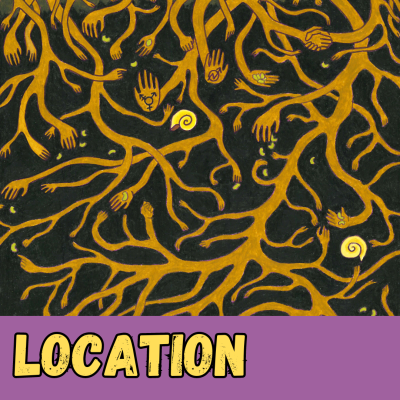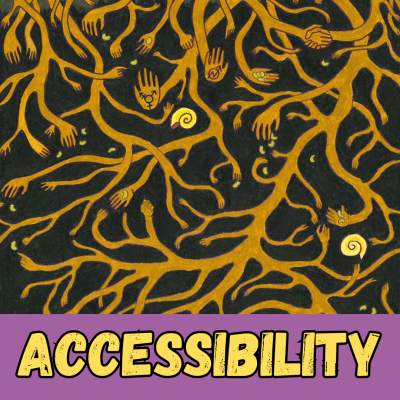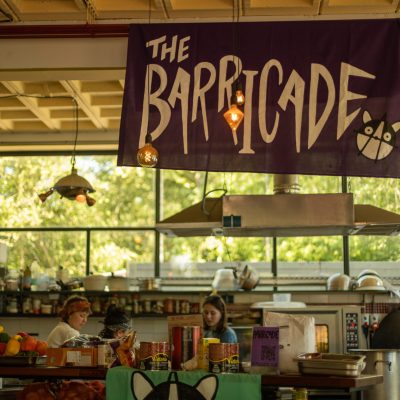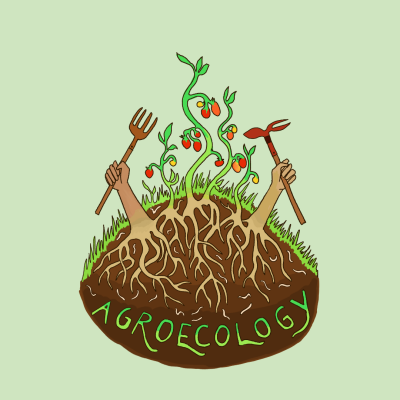Dear supporters, followers, and comrades,
As 2020 comes to a close, we, at ASEED, have been reflecting on the year we’ve shared and what this means for us as individuals, as a collective, for our campaign, and for the world at large. It’s no surprise that COVID-19 has had an enormous effect on what ASEED planned to do this year. This crisis has laid bare that the man-made systems that govern our world are not equipped to deal with the ever increasing fall-out of the climate crisis. It has also become increasingly clear that the state- and corporate-controlled industrial food system lies at the heart of this, and many other crises we faced globally this year.
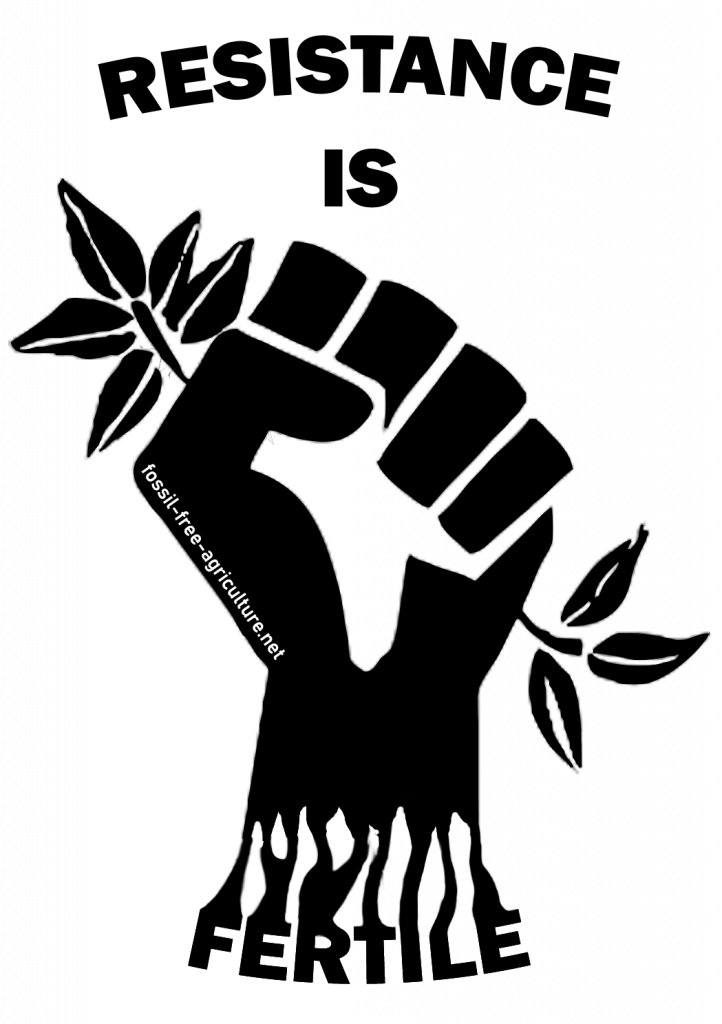
We had the chance this year to test our resilience as a team, as well as dedicate ourselves to taking care of each other, vulnerable people in our communities and abroad, and dig deep into learning about the roots of the crises we face. This meant a tangible commitment to making intersectionality a key component of how we approach the Fossil Free Agriculture campaign, as well as the other work we do and other campaigns we put our time and energy into supporting. It also meant adjusting our plans a good deal!
While 2020 meant changing plans and compromising it also meant being flexible and discovering that although the pandemic was the focus of this year it is not the only crisis we face. Now more than ever we are committed to our lofty goal of dismantling industrial agriculture in order to build a world that is more equitable.
In the following article you can see more about what ASEED accomplished this year, how we adjusted, and where we thrived, along with a short financial update. We hope that you are excited by the form that the Fossil Free Agriculture Campaign took on this year and that you will help us in looking forward and planning the coming year by helping to fund us structurally. Make sure to check the link for thank you gifts for all our supporters!
Seven Highlights from 2020:
1) The Food Autonomy Festival, Homemade
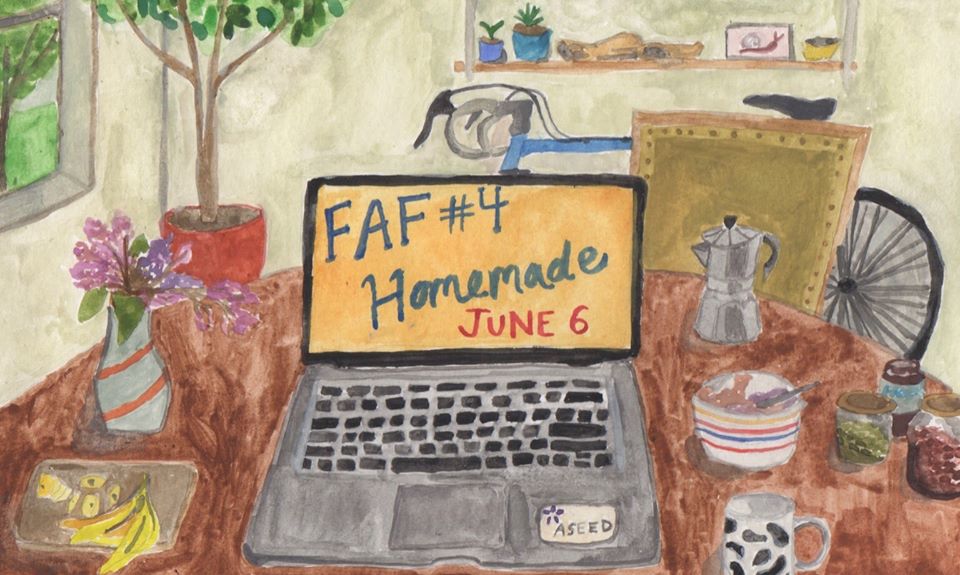
One of the first projects that we had to re-imagine was the Food Autonomy Festival. Over the years this event has grown from a day festival to a weekend camp. The goal is always bringing people together from different backgrounds and struggles to foster and grow alternatives and resistance to industrial agriculture. This year, as with every other year, we had attendees who are already active and looking to share as well as people looking for ways to get involved with this beautiful form of resistance; gaining even a little bit of autonomy over what we eat!
During the full day of “living libraries” and panel discussion we tried to create the same cozy, social environment filled with truly radical ideas and space to connect. We did this by creating several meeting rooms, having a tour of the Pluk farm with one of the farmers, who happens to be a member of our collective as well! We also used a digital whiteboard for folks to share articles, podcasts, images, and feedback with each other. Beforehand we sent around recipes so participants could join a digital lunchroom over a “shared meal”. Small details to try to keep the festival as true to its roots as possible, while ensuring that we kept everyone safe by taking seriously the call to stay home and limit contact until the virus was more under control.
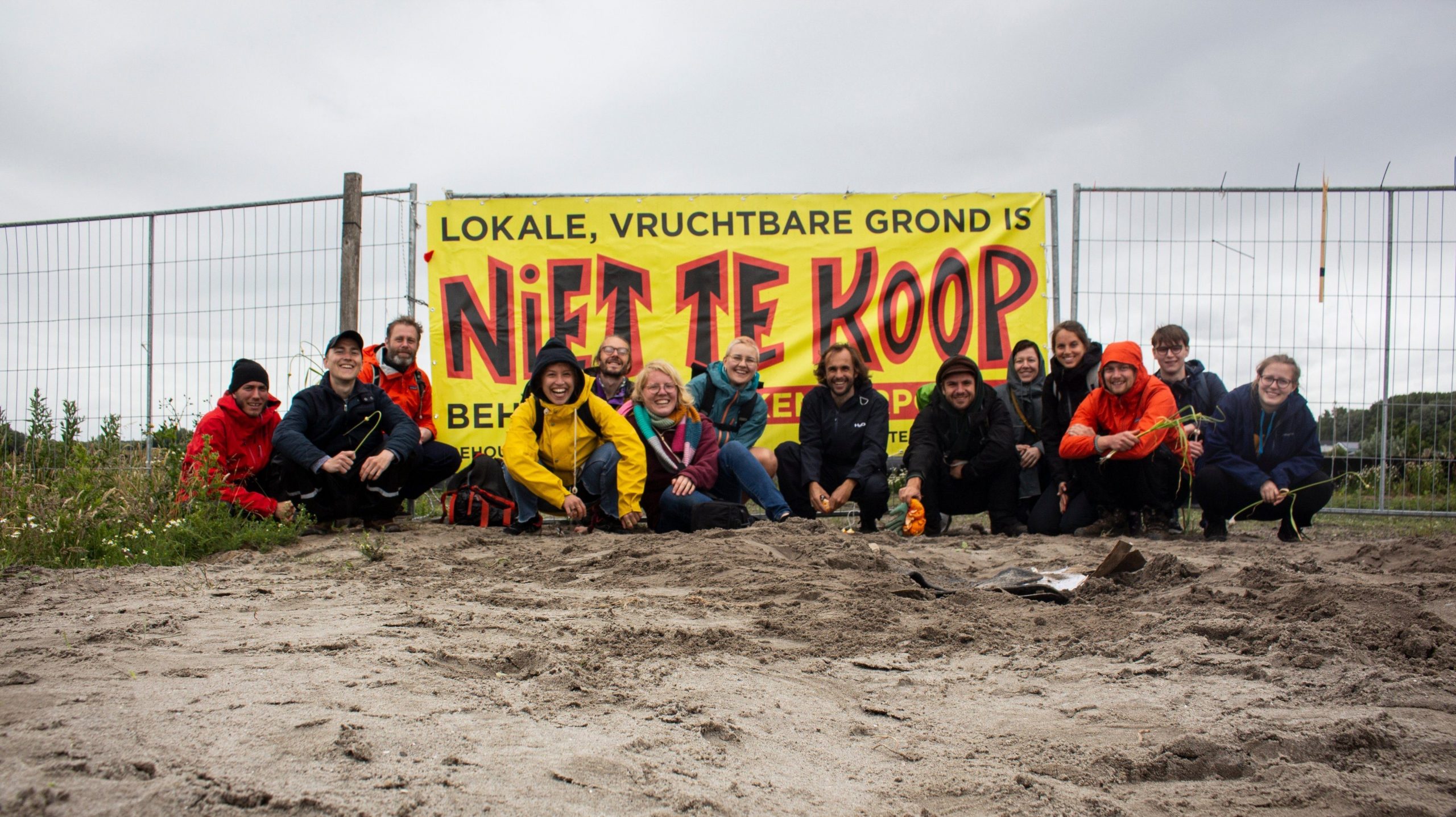
The following day a small group of activists carried out a seed-bombing action in the Lutkemeerpolder. Then they biked around Amsterdam to hang banners that called for saving fertile agricultural land for farming, and not for the profit of a few stakeholders.
2) Building Community, Urban Farming and Moria Demos; Taking Action in COVID-19 Times
From farming in community gardens to reinventing the wheel with new protest and actions strategy, 2020 has been a year of building communities and coming up with new ways of protesting. We also developed a study about the Urbans Farms in Amsterdam analyzing the different challenges they face about Technical/Technological, Social/Cultural, Political, Environmental and Economical points of view. Some of our favorite moments related to this are the following:
Mahatama Ghandi Garden:
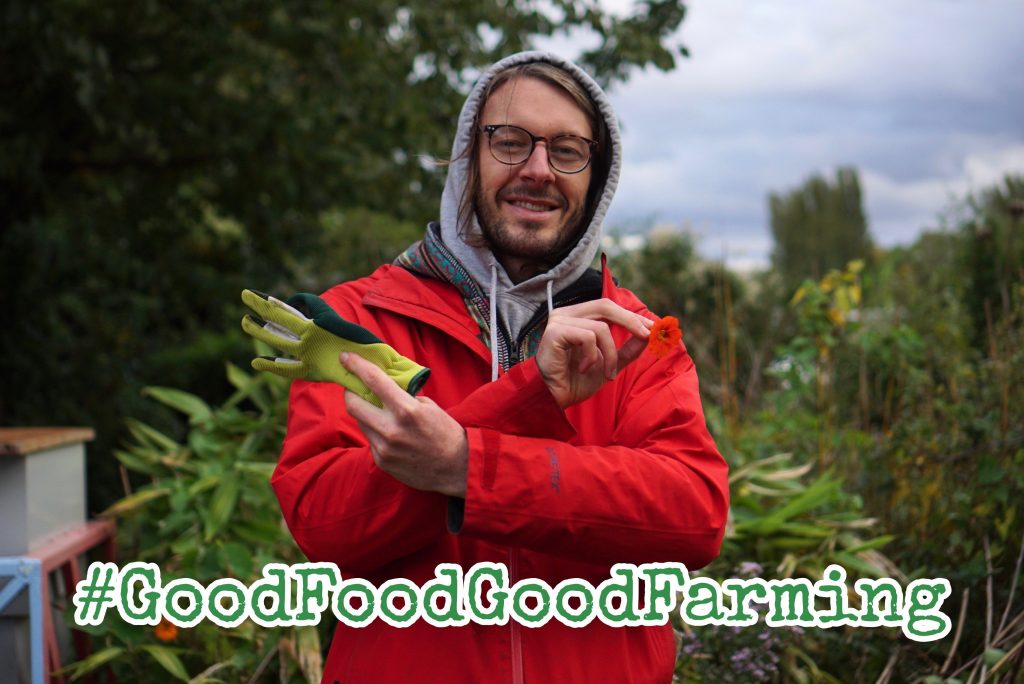
?Nettle-Nasturtium Pesto?: on the 1st of November we gathered at the Mahatma Gandhi Plantsoen and took care of the garden, preparing it for winter. We then realized we had so many nettles over there that we decided to make pesto out of it and distribute it to our neighbors around the Plantage and friends. Check the end of this article we published for the pesto recipe.
There is lots of nasturtium left at the Mahatma Gandhi community garden and the best part about them is that you can also eat the flowers! Another exciting development; the Mahatma Ghandi plantsoen is now on Google Maps! If you’d like to visit the garden at some point, now you can just search for it by name!
Leave No One Behind: Moria Demo’s:
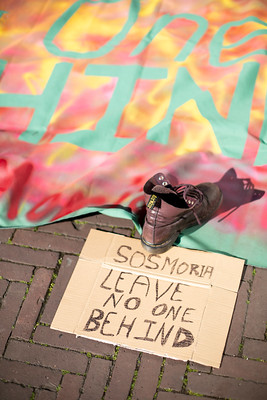
Beginning in April, we started a series of demonstrations that lasted for almost 2 months: #LEAVENOONEBEHIND
What was it all about? Along the edges of Fort Europa it became more and more clear that the border policies of Europe are sacrificing the lives of those who are in desperate need of help. Nowhere was this more clear than Moria, the refugee camp on Lesbos with 24,000 people squeezed into a camp built to house 3,000.
While we believe that we must respect the rules of staying home in order to protect those most vulnerable we also believe that we cannot stay silent while human lives are being sacrificed. We demonstrated to demand that our governments, even our local governments, take action to protect not just us, but all those who need shelter.
FARMsterdammers:
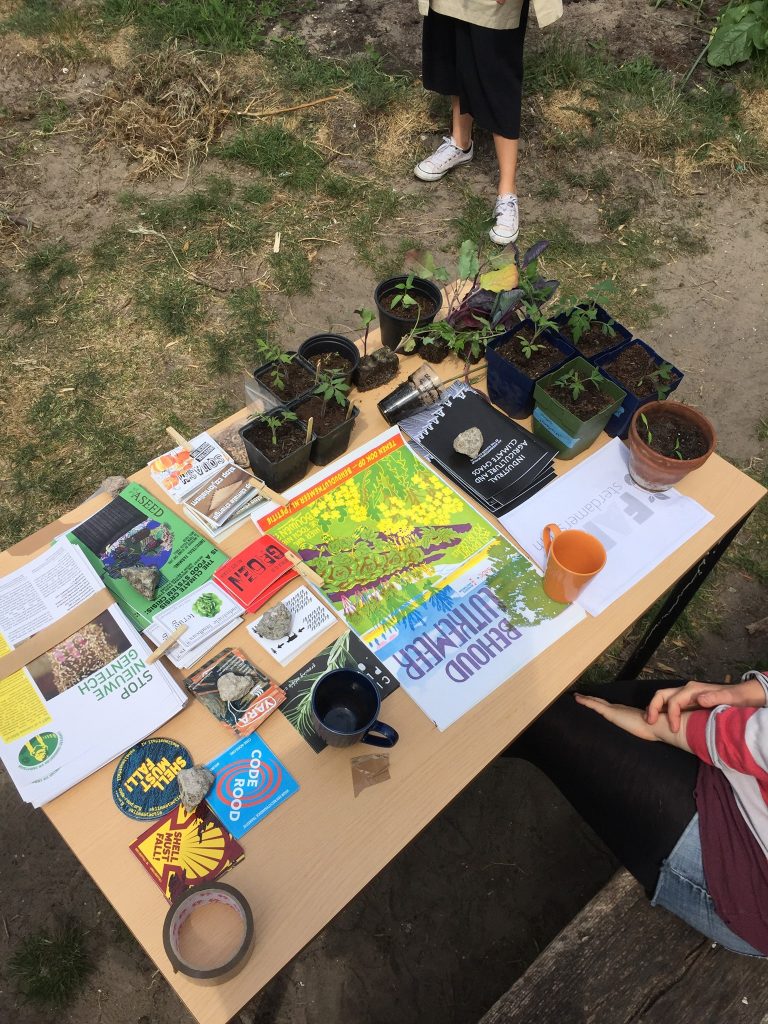
In May, ASEED joined FARMsterdammers day. This was a project initiated by several farmers, urban food growers and other folks from Amsterdam and ASEED was part of the core organizing team.
What was it about: a full day of taking the streets and green spaces for exchanging seeds and seedlings with the people from your neighborhood in order to encourage everyone to grow their own food at home, as well as promote seeds and agriculture biodiversity for a sustainable food production and food sovereignty.
3) The Lutkemeerpolder: Resistance to Destruction Keeps Growing!
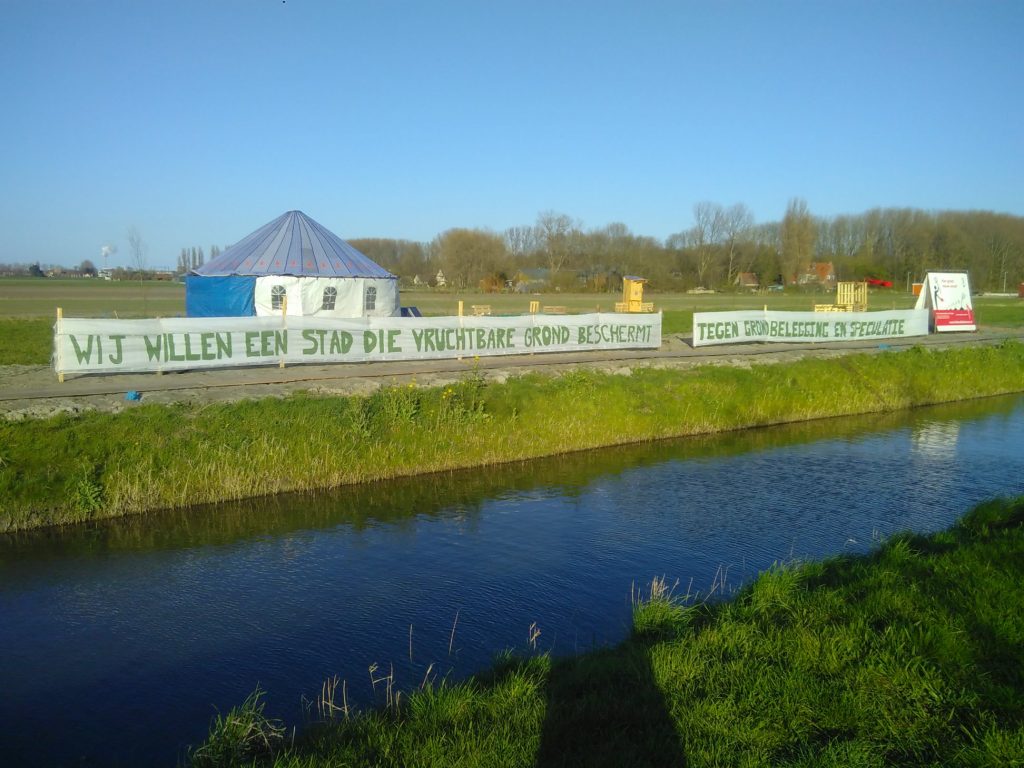
This year there were big plans for reoccupying the old Tuinen van Lutkemeer, but while trying to limit contact and not gather in large crowds this task became quite impossible. Such an occupation requires a critical mass to keep everyone safe. But that did not stop Behoud Lutkemeer from continuing to take action, and ASEED supported them at every opportunity.
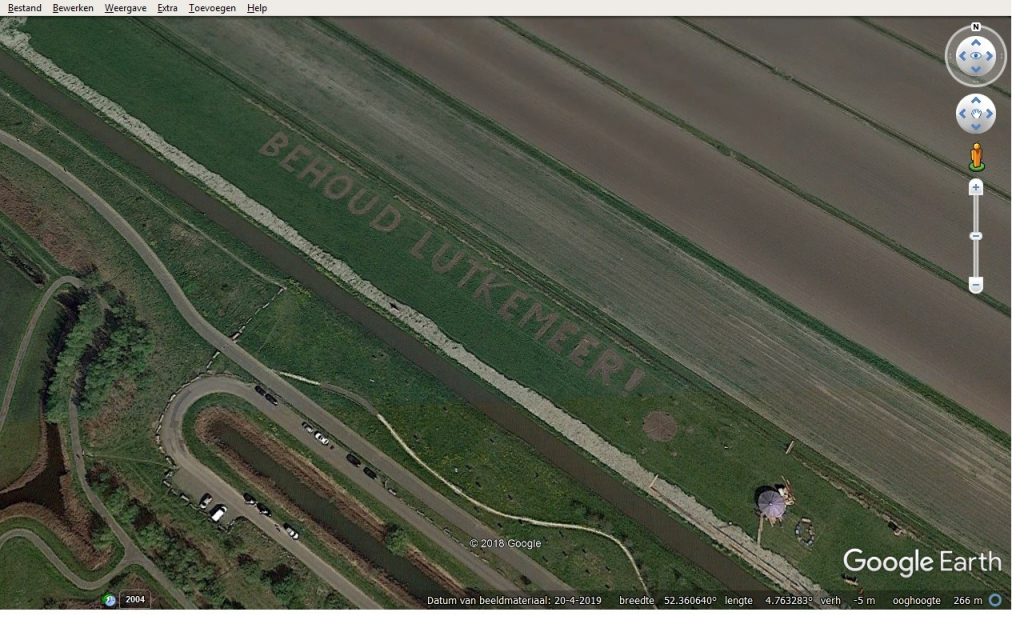
This struggle is particularly exciting to participate in for many reasons. First of all, it is constantly and consistently growing. With growing support from climate coalition work, to involvement from students from the Reitveld academy to the increasing numbers of local residents who want to save this space, it is clear that there is a broad range of support for keeping food chains local and organic!
Secondly, we use many types of action to visualize the struggle! In the spring, Behoud Lutkemeer began a petition campaign that involved numerous postering actions and a day of bringing the polder to squares all over the city. Following this enormous outreach initiative we held a demonstration at the Stopera, while citizens were not allowed to speak during city council meetings (a violation of true democracy if there ever was one) and decided to give our speeches outside. We also gave Marieke van Doorninck the petition to rezone the polder with more than 7,500 signatures!

Throughout the summer members Behoud Lutkemer and ASEED attended legal hearings, council meetings and events across the city to call out the hypocrisy of a government that in one breath acknowledges the climate emergency and vows to be a “fearless city”, and in the next says they cannot do anything to restore the land to agrarian use despite the fraud in the buying and selling of the land or the fact that it is a crucial part of the biodiversity of the greezone that runs along the western edge of Amsterdam!
ASEED sees itself as a part of this impressive campaign, and hopes to be able to keep contributing by spreading the message, helping to organize actions such as the bike demo from the polder to the Climate Strike in September, to continuing to support by showing up to council meetings and helping organize demonstrations!
4) Vokus, Benefit Dinners & Workshops
Before the first Covid-19 wave we organized several workshops in the Volksamer and in de Dokhuis about Ecofeminism and Seeds Sovereignty. We once again joined the 2.Dh5 festival, this year at the BAK in Utrecht, with a presentation about alternatives to synthetic fertilizers, reflecting on the Fossil Free Agriculture campaign and connecting with other grassroots organizations.
When the first lockdown came most of our events were cancelled.
During this time members of the collective shared and attended a large variety of webinars and workshops to stay up to date on what was happening in the wake of the current COVID-19 crisis. These opportunities to see speakers that would normally be impossible for us to see and ask questions of front-line defenders and researchers in all kinds of struggles was powerful. It became more and more clear that while a pandemic hits in a much more obvious way this is just another symptom of the profit-driven, consumerist global economy that is destroying the lives of people around the world everyday and driving us further into the climate crisis.
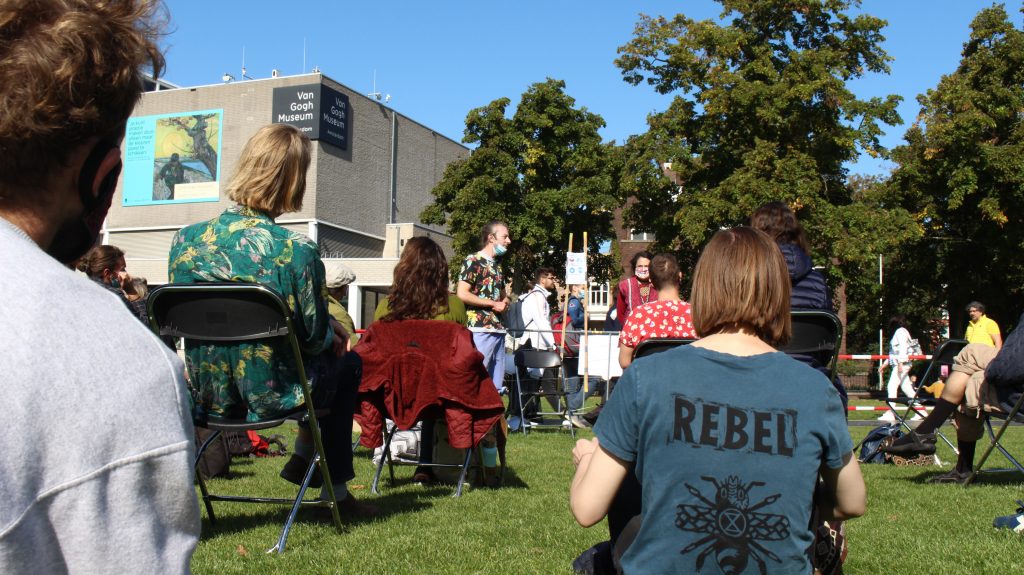
After adjusting course and getting as much of a grip as we could on the current situation we got back to work putting together our own content. Of course we did the FAF Homemade, but we also organized a workshop on Decolonizing Permaculture for the XR Rebellion week, as well as continuing to organize online reading groups. We’ve also hosted three more Solidarity Voku’s, with careful protocols around hygiene, and a takeaway benefit solidarity dinner in support of the Nieuwland public space.
Normally ASEED would have hosted many more benefit dinners, which are a large part of our funding, and our ability to help support other initiatives we collaborate with, unfortunately this year we were not able to host as many dinners as we would have liked. This was a shame, not only for our budget, but also for our way of staying connected to our larger community and spreading awareness about the importance of agriculture in so many aspects of our lives!
5) Solidarity Farming Project
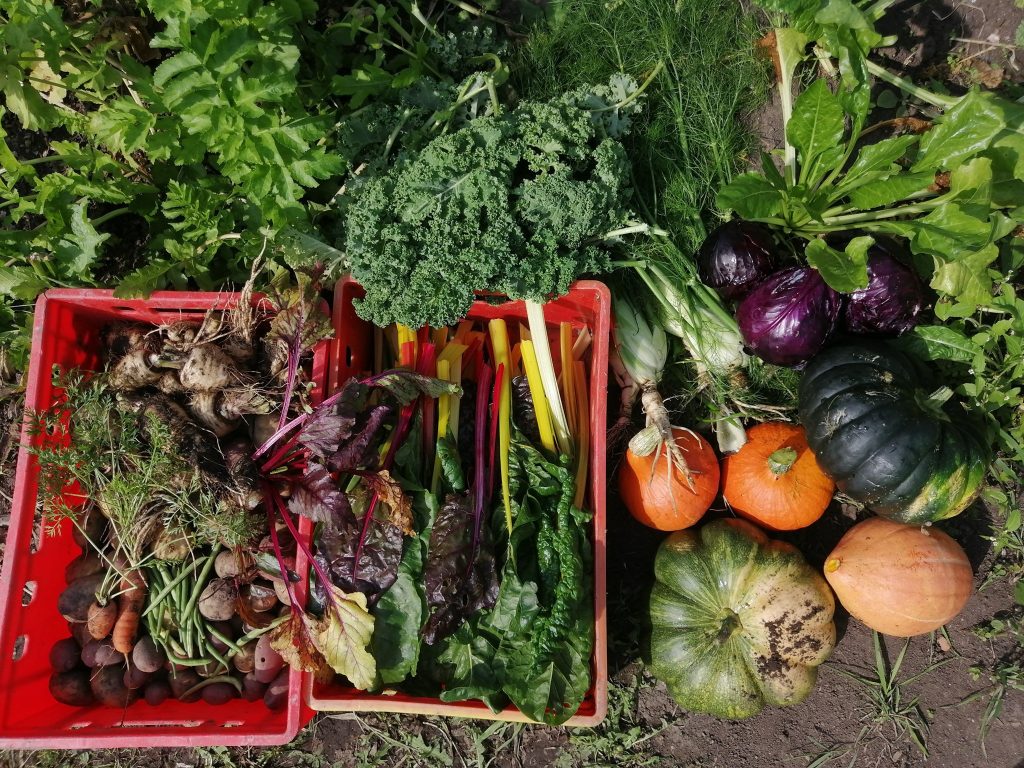
The “Solidarity Farming project” was one of the most successful activities we organized during the 2020. Coming from another Erasmus+ grant, this project aimed to bring together young people and highly vulnerable non-EU migrants to participate in farming and food related projects with local growers and social spaces.
One of the most successful collaborations we carried out was farming days in a Community Garden located in Oudekerk followed by cooking together in the DokHuis. These days began with meeting to bike together, an afternoon of harvesting delicious fresh vegetables, and an evening of feeding around 60 people! Those were amazing full days of how Food Sovereignty works combining social and climate justice struggles.
You can also check out the beautiful video we created as part of the “Good Food Good Farming” Action Month demanding a Common Agricultural Policy reform that supports farmers protecting the environment not corporations destroying it.
6) Reading Groups & Podcasts
ASEED recognizes the need to embed an intersectional approach in the way we organize and act as a social movement aiming for agricultural justice, climate justice and food autonomy and overall systemic justice. The topics chosen for both the podcasts and the reading groups belong to a whole series of topics which belong to, and reflect our intersectional approach. Of course, due to COVID-19 we had to change our typical structure for these activities, and we feel it worked out quite well!
Our series of podcasts, so far, consists of four episodes, namely: “Violence vs. Non-violence through Frantz Fanon and Albert Camus”, “Gender & Agriculture with Ann and Annie”, “Degrowth with Giuseppe Feola”, and “CAP with Verena & Stanka from Good Food Good Farming and Friends of the Earth Europe”. If you missed these episodes you can search “podcasts” using the search feature to find them back quickly!
Our reading groups resulted in really interesting reflections and discussions. So far the topics we chose were: “Gender & Agriculture”, “Alternatives to Industrial Agriculture”, “Veganism and Organic Farming”, “Degrowth”, “Decolonizing Degrowth”, “Food Sovereignty/Autonomy & Food Security”, and “Who Controls the Land?”. Because everything moved online in the spring we were able to include old members and volunteers from abroad in our continued deep dives into a variety of issues around agriculture. You can read back through our reports from the reading group by checking out the projects section of the webpage.
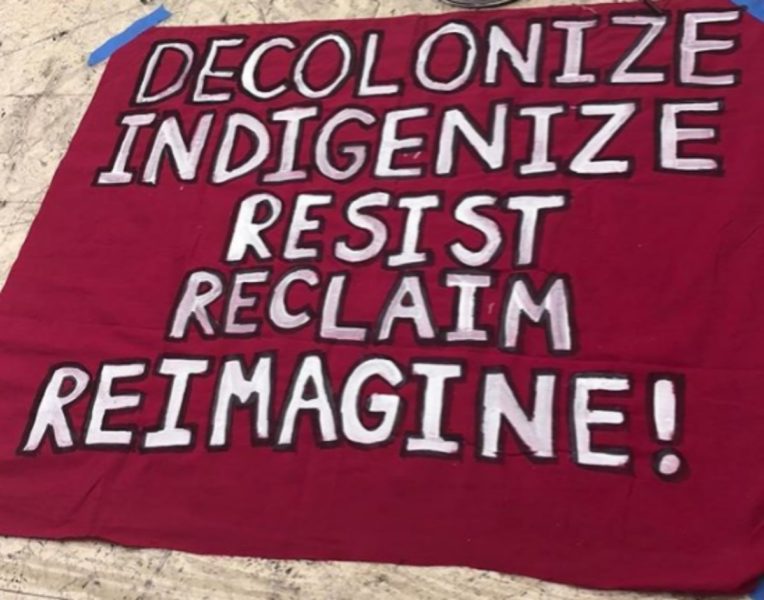
7) ASEED Statements & Translations
If you’ve been following ASEED’s work for awhile you already know that we have strong commitments to addressing many of the topics that a just agricultural system would entail. Beginning in autumn 2019 ASEED structured the year around the concept of intersectionality and the struggle for agricultural justice. Last October we started a series of bimonthly topics, which we continued through 2020, where we looked into direct action, indiginous struggle, eco-feminism, seed sovereignty and degrowth.
We also organized a webinar, open to allies as well, with Mama D to discuss the concept of intersectionality and decolonial perspectives. After this workshop series some members of the collective collaborated with Mama D to write our Intersectionality Statement. We also updated our Mission Statement to explicitly reflect these values, as well as our Safer Space Policy.
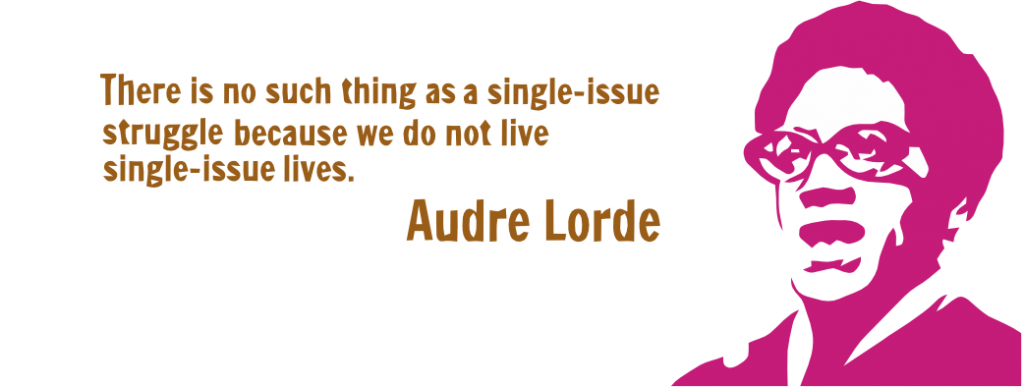
Additionally, with more time to work on documents and our web presence due to restrictions on mass actions and gatherings, the core team put energy into translating articles and important documents on the webpage into more languages. We also spent time improving the usability of the ASEED website.
ASEED Finances 2020
Everyone felt affected by the Covid-19 crisis (except big corporations making more profit than ever) and ASEED didn’t escape from it. Some of our favorite activities are the benefit dinners, workshops, actions, social events, etc. Besides having a good time it’s always a good source of structural income for us that hardly happened this year due to all the restrictions.
On the other hand, we had more time for doing research on new funding opportunities, writing reports of the already existing and building connections with other groups.
As usual, this year we’ve been supported by the Erasmus+ “European Solidarity Corps” as one of the main sources of income for ASEED, allowing us to work with 4 new comrades for a full year.
We also received two grants from Patagonia, which goes directly to the FFA Campaign and structural funding.
For the first time we took part in a European Solidarity Project coordinating the great “Solidarity Farming” project mentioned above. These funds went to other organizations, but we were honored to have the opportunity to collaborate on such a project.
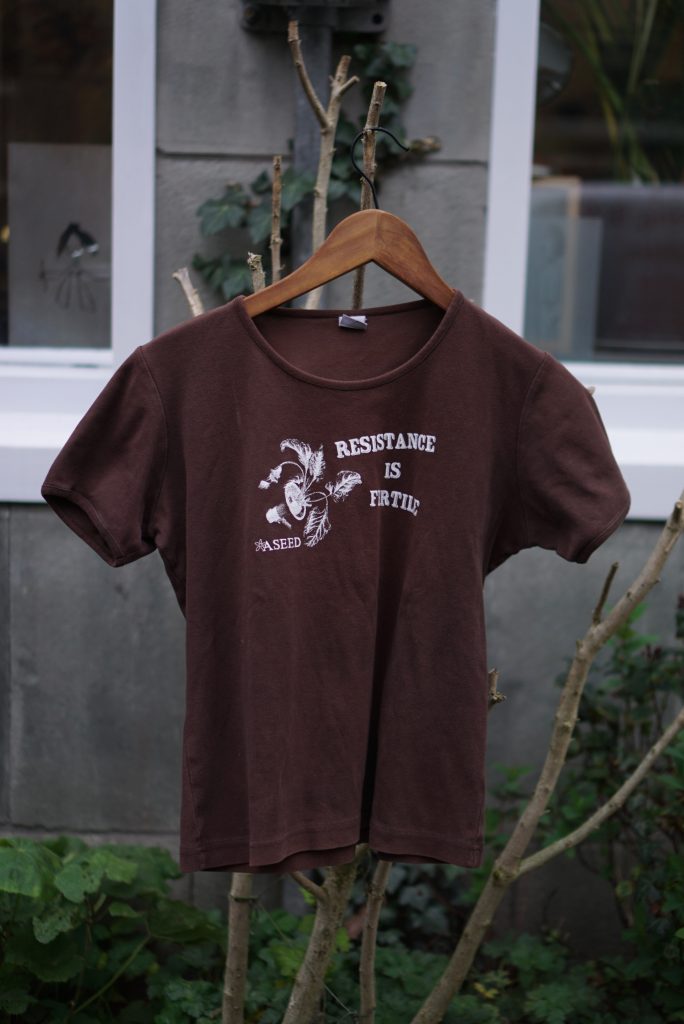
We’ve dedicated time to applying for several grants that could bring more stability to our community in 2021. Specifically two large grant applications that are youth oriented around the topics of agroecology, intersectionality and food sovereignty in the shape of webinars, workshops, farming activities and decentralized actions. We’ll keep you updated!
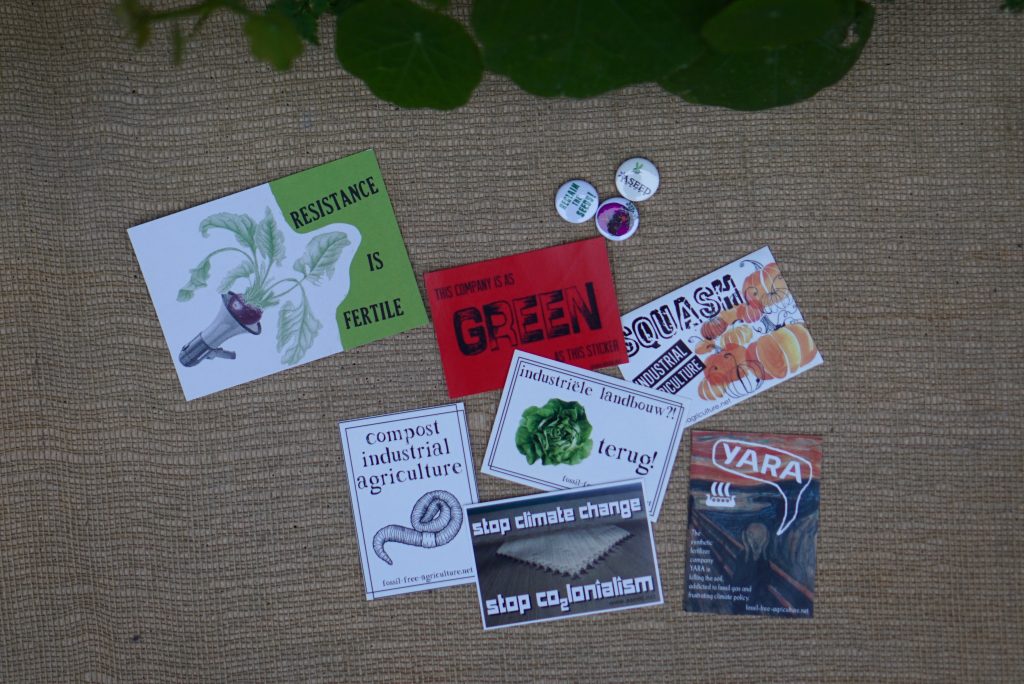
Finally, this year we are organizing a donation drive where we hope to gain more monthly contributors to ensure that we can spend the majority of our time planning projects, researching our topics, and directly participating in the struggle for a Fossil Free Agriculture! We’ve organized sets of thank you gifts for all our structural funders so if you’d like to have something to show your support check it out here!
A Few Final Words
We’ve learned so much this year. All over the world we’ve seen people rising up against racism, exploitation, and repression. Throughout the social and climate justice movements we’ve heard that it’s time to fight every crisis like a crisis! Our governments have said that making radical change isn’t possible, but the response to COVID-19 has shown that it is possible. Now let’s demand that change is just and leads to real, long-term, sustainable solutions to the problems we face collectively.
At ASEED we plan to continue educating ourselves and sharing that in the most accessible and powerful ways we can. In 2021 we hope to pick up Free the Soil in a more local context, create some iteration of the Food Autonomy Festival, keep supporting struggles like Behoud Lutkemeer and stay involved in community gardening and city agriculture projects, as well as continuing to build and grown connections between the global north and south.
From ASEED to all of you, our comrades and supporters, we want to wish you health, clarity of vision, and strength in the coming year! Together we are stronger, so let’s keep in touch!
Love&Rage,
ASEED

